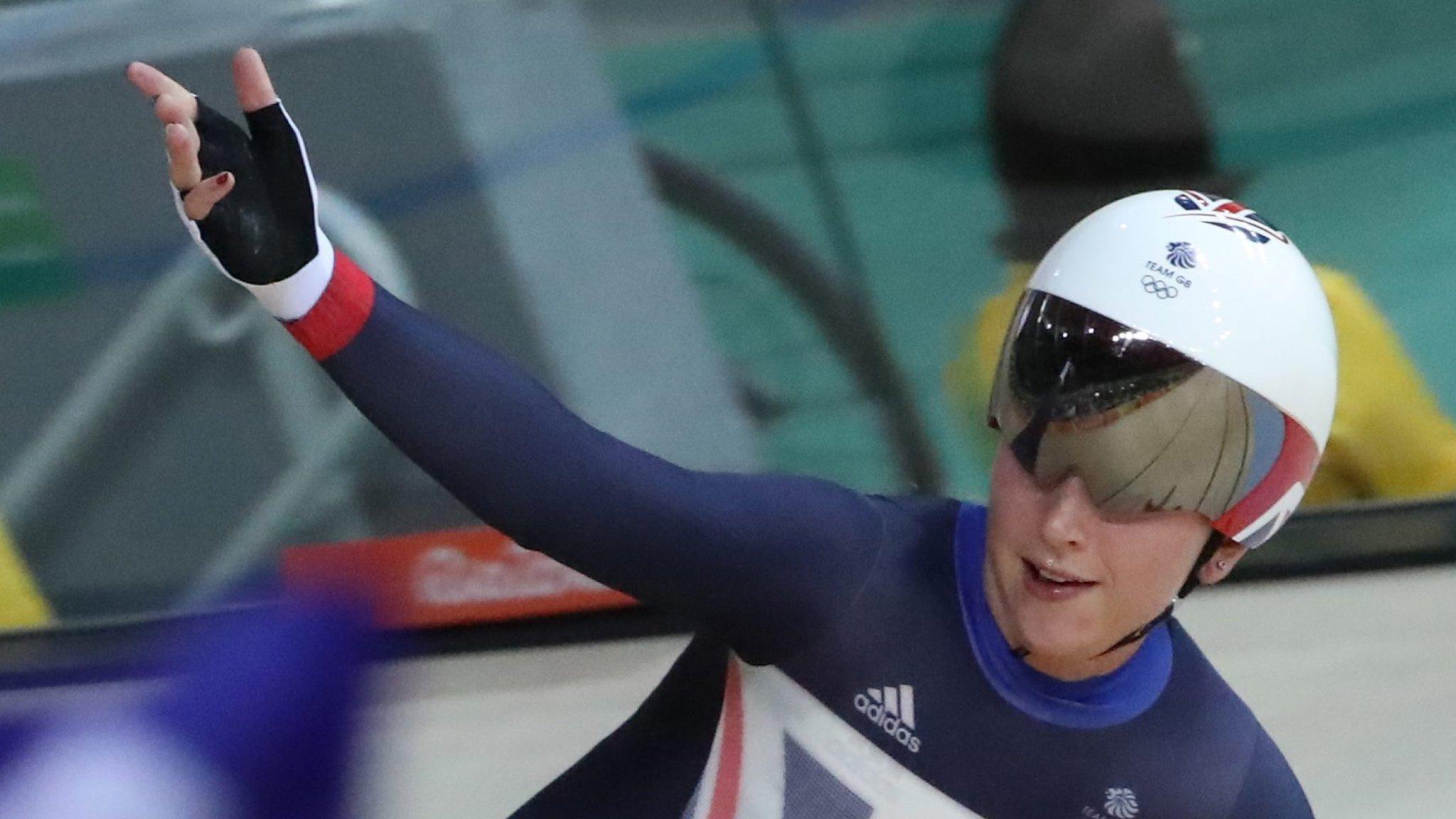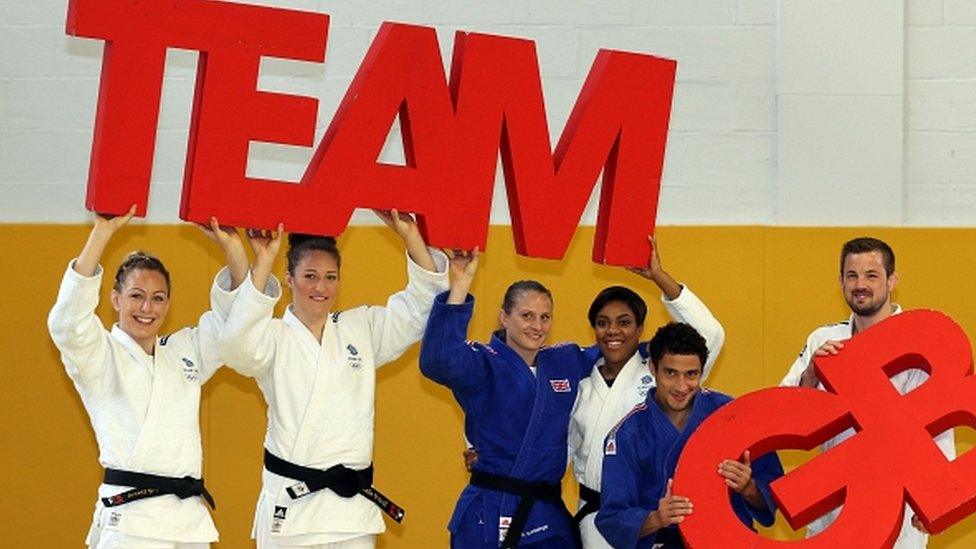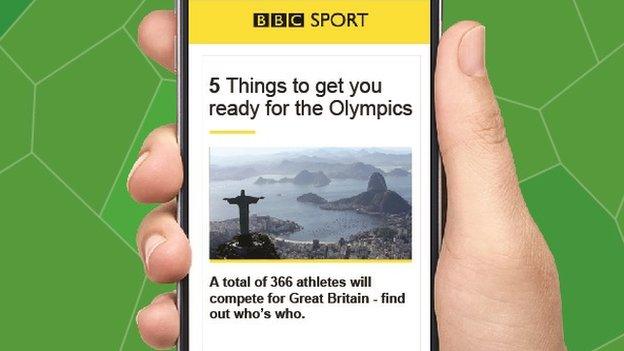Rio Olympics 2016: Mark Cavendish wins silver medal in men's omnium
- Published
Great Britain's Mark Cavendish achieved his ambition of winning an Olympic medal by taking silver in the omnium.
The Manxman has won four world titles on the road and track but missed out on a medal in his previous two Games.
Silver in Rio vindicates his decision to pull out of the Tour de France with five stages remaining to concentrate on the Olympics.
Italy's Elia Viviani won the title, with defending champion Lasse Hansen of Denmark in the bronze-medal position.
Viviani won the six-discipline event, which is held over two days, with a total of 207 points, with Cavendish on 194, two clear of Hansen.
"I have got my Olympic medal," Cavendish, 31, told BBC Sport. "It is really nice but gold would have finished the collection."
He said he thought Rio would be his last Games but didn't completely rule out trying for Tokyo 2020.
The medal continues a terrific year on the road and track for Cavendish.
He won the madison title at this year's track World Championships with Sir Bradley Wiggins, before switching to the road and claiming the race leader's yellow jersey at the Tour de France for the first time by winning stage one.
Cavendish won three more stages in the prestigious race to take his tally to 30 - second on the all-time list behind Belgian great Eddy Merckx, who won 34.
Crash controversy does not affect result
There was drama during the final event of the competition, the 160-lap 40km points race, when Cavendish collided with South Korea's Sanghoon Park.
Three riders ended up falling with 109 laps to go, including Viviani.
The race was briefly neutralised while the Italian got back on his bike, while Park suffered mild concussion, burns and bruises.
"It was my fault, I should have been looking where I was going a bit more," said Cavendish, who cut down the banking of the track in front of Park.
The incident put Cavendish's medal in doubt but the result stood because none of his rivals submitted a protest that could have resulted in a disqualification.
"It's not his fault," Viviani said. "The Korean guy was halfway on his wheel to the right. Normally you stay on the wheel. Cav was in the front and changed direction so it's all normal. It's a normal crash on the track."
BBC cycling commentator Rob Hayles said the crash had not helped Cavendish because it allowed the other riders to rest.
"He would've wanted a hard race," said Hayles, who won a track silver and bronze at the 2004 Games in Athens.
How Cav finally got his medal
Cavendish's first two Olympic experiences ended in disappointment.
He came ninth in the madison with Wiggins at the 2008 Beijing Games, when the duo had been favourites for gold.
Wiggins, chasing a third gold at the Games, was fatigued, which meant Cavendish left China as the only member of the track team without a medal.
At the London 2012 Olympics, the sprinter-friendly finish on The Mall looked tailor-made for Cavendish, but the Manxman could only finish 29th.
However, he was not to be denied a medal in Rio.
He came sixth in the opening event of the omnium, the scratch race, before being second fastest in the individual pursuit.
He was seventh in the elimination race after being ejected for an illegal overtake to lie third going into Monday's final three events.
He finished fifth in the time trial to go joint second before third in the flying lap saw him go into the points race in outright second, 16 points behind Viviani.
Cavendish consistently picked up points in the 16 intermediate sprints during the final race but never made inroads on the Italian's lead.
Analysis
Six-time Olympic cycling champion Sir Chris Hoy:
"There was no big celebration, he wasn't punching the air. There was a sense of disappointment, but he has to see this as a massive achievement. The omnium is about being the best all-rounder - and he was nearly that."
- Published15 August 2016

- Published18 August 2016

- Published3 August 2016

- Published19 July 2016

- Published3 August 2016
